Dune: Part Two – Hans Zimmer designs the sound of sand
Composer of the Dune: Part Two score, Hans Zimmer tells Wallpaper* about his ‘industrial, mechanical, brutal’ sonic journey
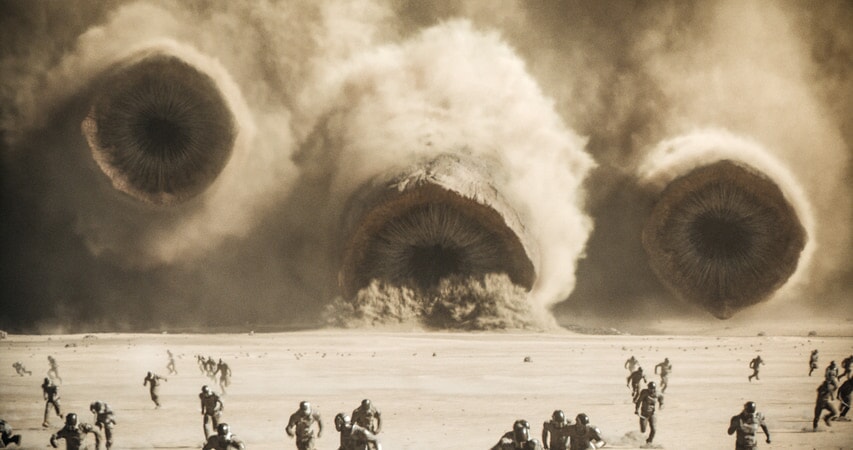
There's a classic 1960s story about how The Beach Boys’ Brian Wilson optimised his home songwriting environment, the better to capture the magical world of Californian surf culture: he plonked his piano in eight lorryloads of sand. Might Hans Zimmer, the 21st century’s greatest evoker of mythic sandscapes, most recently for Dune: Part Two, employ a similar trick?
'It's funny you should mention that,' says the composer, who won an Academy Award in 2021 for his soundtrack to Dune: Part One, film director Denis Villeneuve’s debut installment of Frank Herbert's story about what Zimmer calls 'the most unloved planet' of Arrakis. 'The only time I took sand home and had it in a glass jar next to me was when I was working on Dunkirk,' says the 66-year-old German, referring to the 2017 Second World War drama directed by Christopher Nolan.
'While they were shooting, I went to the beach [in Normandy]. I thought: this is true history. And I just grabbed a handful of sand and took it with me, so that I would never forget what I was really writing about.'
Hans Zimmer on creating the Dune: Part Two score
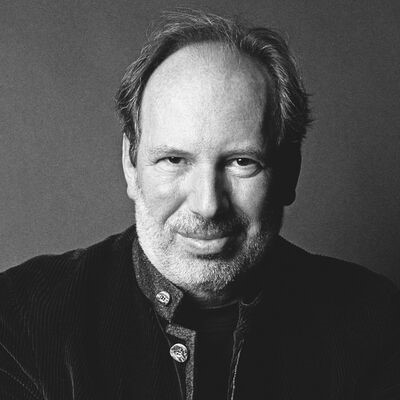
Composer Hans Zimmer
Sci-fi author Herbert’s 1965 novel was a teenage obsession for Zimmer, as it was for French-Canadian filmmaker Villeneuve. 'We're two foreigners,' says the composer, highlighting the pair's lack of a shared first language. 'So we meet and communicate in the best way, him with visuals and me with music. All the words are redundant. I play him of a piece of music and it either touches him or it doesn't touch him.'

Before Dune: Part Two was greenlit, Zimmer admits he had already written a piece that was something like a love theme for the characters played by Timothée Chalamet and Zendaya, pictured
After striking sonic cinematic gold with previous repeat collaborators Nolan (The Dark Knight trilogy) and Ridley Scott (Gladiator, Black Hawk Down), the double-Oscar-winner (the first was for The Lion King Best Original Score) has forged a similar deep creative connection with Villeneuve. So much so that, even after the release of Dune: Part One, Zimmer didn’t stop writing.
'Six months later, I got a phone call from Denis: "Stop writing! You know the movie's been out for six months now? And we are not greenlit for this [second] movie." But I'm tenacious. I'm going: “We are going to make this movie!” So I wrote “A Time of Quiet Between the Storms”,‘ he says of a swelling piece in the new soundtrack that functions as something like a love theme for the characters played by Timothée Chalamet and Zendaya. ‘Then I went on tour. And all over Europe, I would open my show with that tune, without telling anybody what it was.’
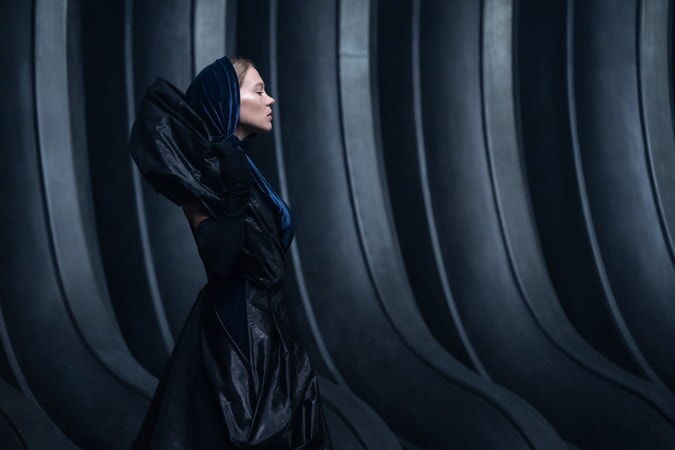
Zimmer studied the production and costume design when writing the film’s score
Zimmer’s music is so integral to Villeneuve’s storytelling that it doesn’t just soundtrack scenes – it helps set the scene. Describing the music he’s composed for the new, even longer film (166 minutes), he says, 'It's quite industrial, quite mechanical, quite brutal', themes in keeping with the war-footing narrative at the heart of Dune: Part Two. In that regard, his job is not just composing music. It’s sound design, too.
Wallpaper* Newsletter
Receive our daily digest of inspiration, escapism and design stories from around the world direct to your inbox.
'Totally,' affirms the Los Angeles-based Hollywood titan (how else to describe a composer responsible for scoring all four Kung Fu Panda animations?) as we talk in a central London hotel. 'That's how I start: "What's the sonic world we want to create?" This goes back to when I was a precocious teenager, and it was a time of science-fiction movies. Other than Blade Runner, most of them had orchestral scores. I'm going: "What are we doing here? This is supposed to be the future, and I'm hearing violins and French horns! This very northern European musical vocabulary.'''

Timothée Chalamet in Dune: Part Two
Cue a lifelong passion for scoring using electronic music, 'because that's really where I started. I was a session guy, here in London, programming synthesisers', says a man with a brief 1970s pop-star past, in Trevor Horn's Buggles.
RELATED STORY
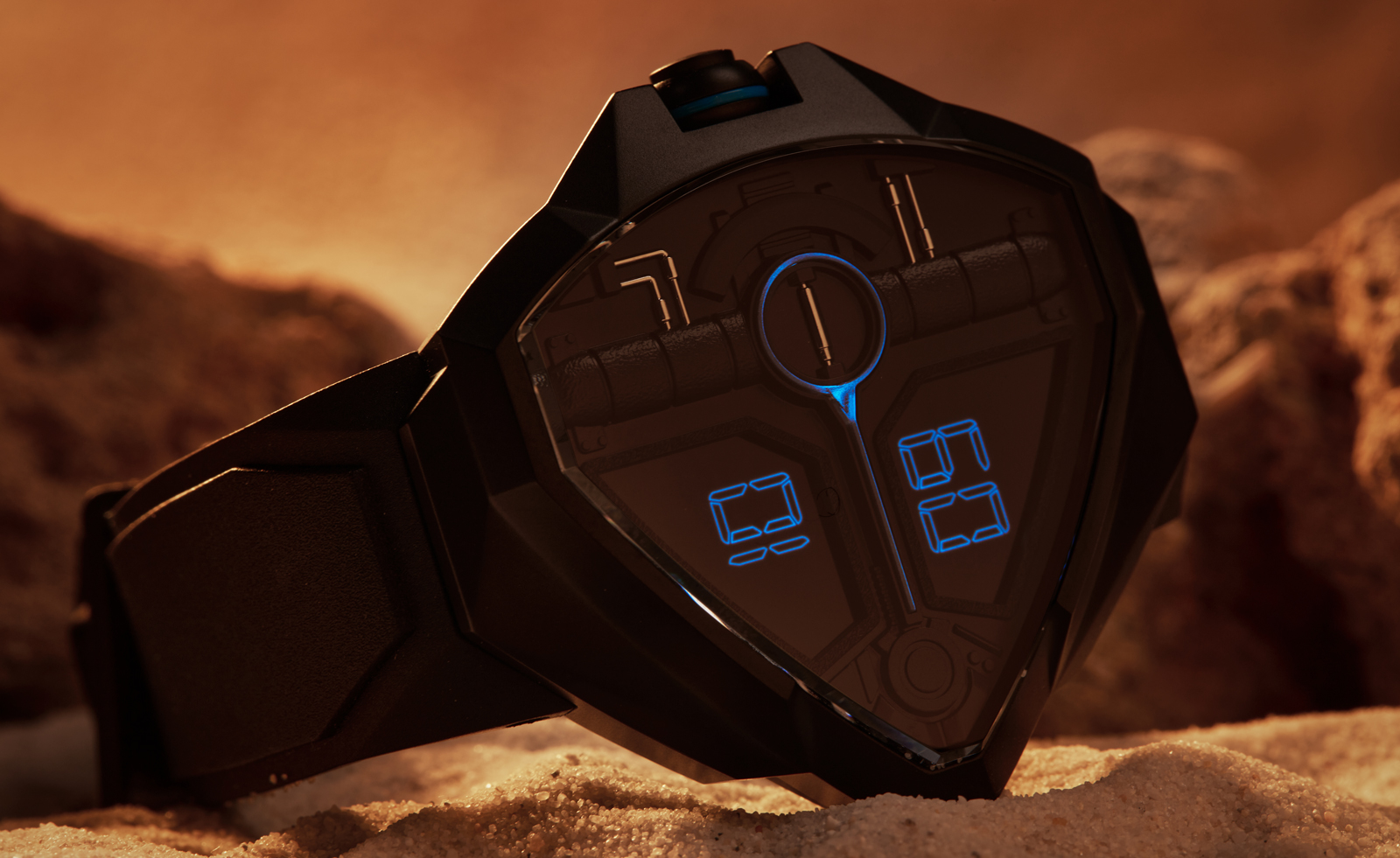
'So it starts off with creating that sonic world that I want the tunes or the motifs to live in. And that sonic world very often bleeds over into Richard King, the sound designer's world,' he says of the American who’s won four Oscars for Best Sound Editing. 'Richard and I know each other so well, because we've done so many Christopher Nolan movies together. So there's [more than] just a camaraderie.'
That work begins even before the cameras start rolling. Zimmer investigates how cinematographer Greig Fraser is going to shoot the film – 'What is the colour palette? And Denis on purpose never showed me the script. Because it was much more about the conversations we were having, as two teenagers, about the book.'
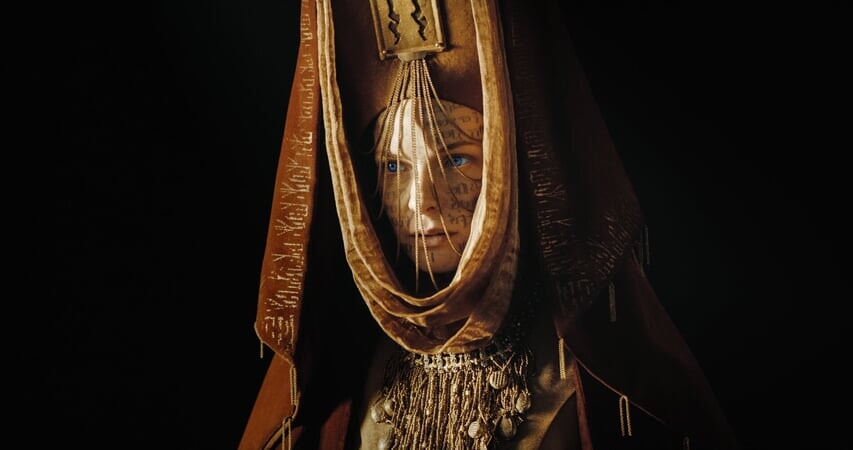
The composer started by asking 'What is the colour palette?'
The spirit of cross-departmental cooperation continues: Zimmer studies the production and costume design, 'which, in this movie is, you know, beyond… We're all in service of telling the story. We're all trying to tell the story in our language. In a peculiar way in cinema, the least important part is the words!' And, as last time, that collaborative momentum continues.
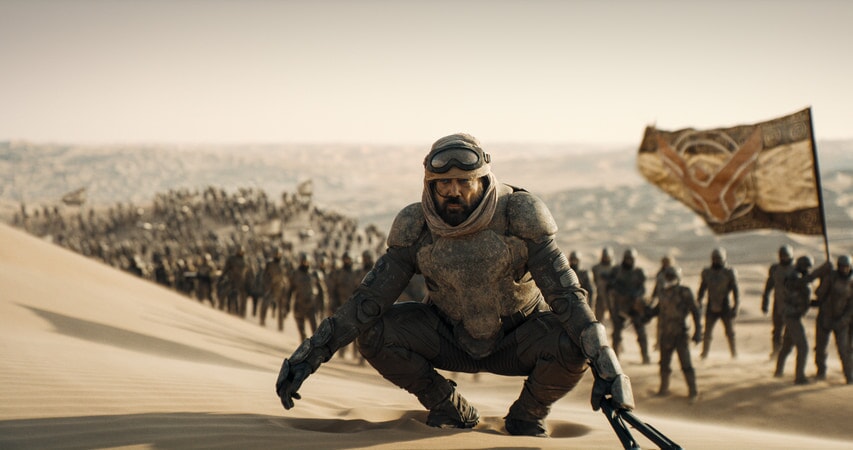
Zimmer’s music is so integral to Villeneuve’s storytelling that it helps set the scene
'I can't quite stop writing,' admits Zimmer, 'because we might be doing a third one. And I sent Denis a ten-minute piece. But like all artists, I have impostor syndrome, and I always think everything I do is... I think the word is “shite” in your language?' the puckish Zimmer says playfully.
'So he's on a plane, and within five minutes, I sent him an email: “Don't even listen to it. It's crap!” Then I get a text back: “You sent me a ten-minute piece. And after five minutes, you're expecting an answer!” Then another answer comes back: “Hey, no, actually, it's really good.”‘
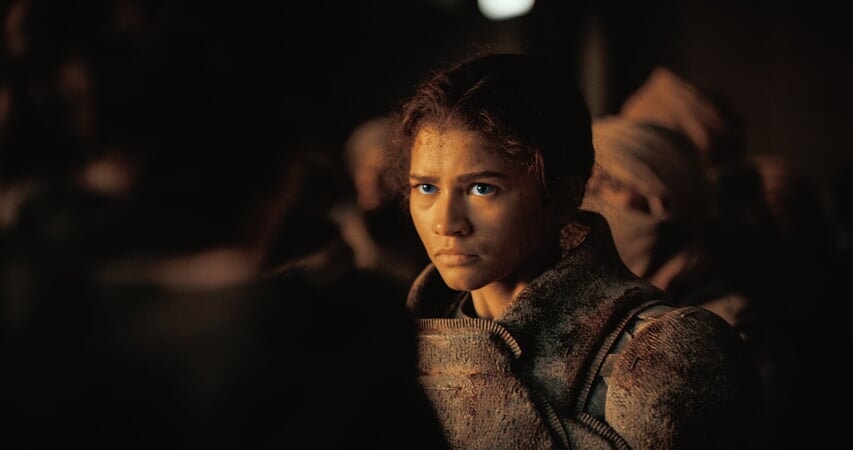
Zimmer describes the production and costume design as ‘you know, beyond…’
Spoiler alert: should there be a Dune: Part Three, this Scotsman can reveal that another rough-terrain territory will likely be evoked in the score.
‘Just earlier [today], Denis said that three nights ago, he had a dream about [the music in] the third movie. I don't know if it's like the dreams of [Chalamet’s character] Paul Atreides, if his vision will come true or not. But apparently there's going to be a lot of bagpipes in the next movie.‘
You heard it here first.
Dune: Part Two is in cinemas from 1 March 2024
London-based Scot, the writer Craig McLean is consultant editor at The Face and contributes to The Daily Telegraph, Esquire, The Observer Magazine and the London Evening Standard, among other titles. He was ghostwriter for Phil Collins' bestselling memoir Not Dead Yet.
-
 Put these emerging artists on your radar
Put these emerging artists on your radarThis crop of six new talents is poised to shake up the art world. Get to know them now
By Tianna Williams
-
 Dining at Pyrá feels like a Mediterranean kiss on both cheeks
Dining at Pyrá feels like a Mediterranean kiss on both cheeksDesigned by House of Dré, this Lonsdale Road addition dishes up an enticing fusion of Greek and Spanish cooking
By Sofia de la Cruz
-
 Creased, crumpled: S/S 2025 menswear is about clothes that have ‘lived a life’
Creased, crumpled: S/S 2025 menswear is about clothes that have ‘lived a life’The S/S 2025 menswear collections see designers embrace the creased and the crumpled, conjuring a mood of laidback languor that ran through the season – captured here by photographer Steve Harnacke and stylist Nicola Neri for Wallpaper*
By Jack Moss
-
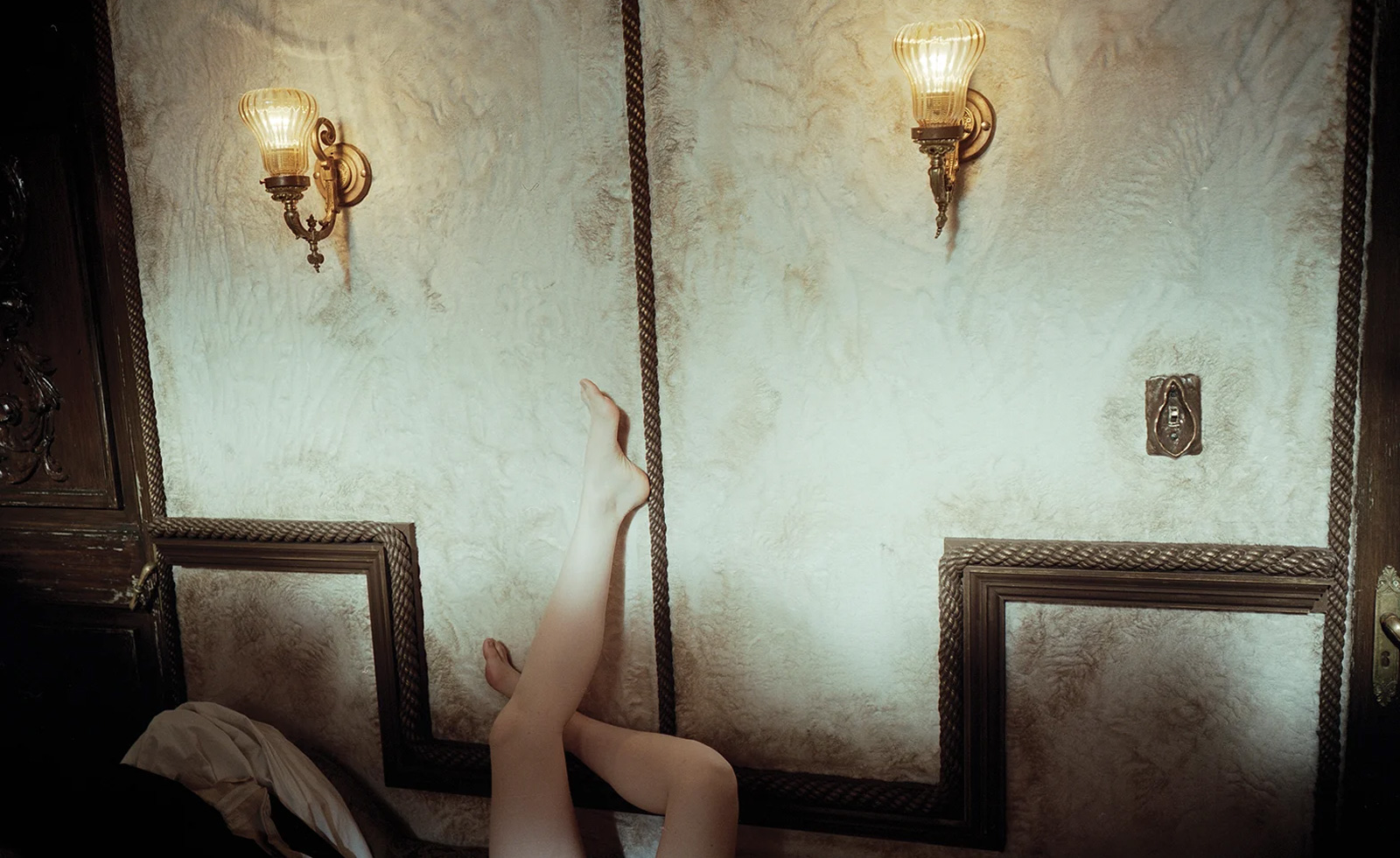 Unlike the gloriously grotesque imagery in his films, Yorgos Lanthimos’ photographs are quietly beautiful
Unlike the gloriously grotesque imagery in his films, Yorgos Lanthimos’ photographs are quietly beautifulAn exhibition at Webber Gallery in Los Angeles presents Yorgos Lanthimos’ photography
By Katie Tobin
-
 ‘Life is strange and life is funny’: a new film goes inside the world of Martin Parr
‘Life is strange and life is funny’: a new film goes inside the world of Martin Parr‘I Am Martin Parr’, directed by Lee Shulman, makes the much-loved photographer the subject
By Hannah Silver
-
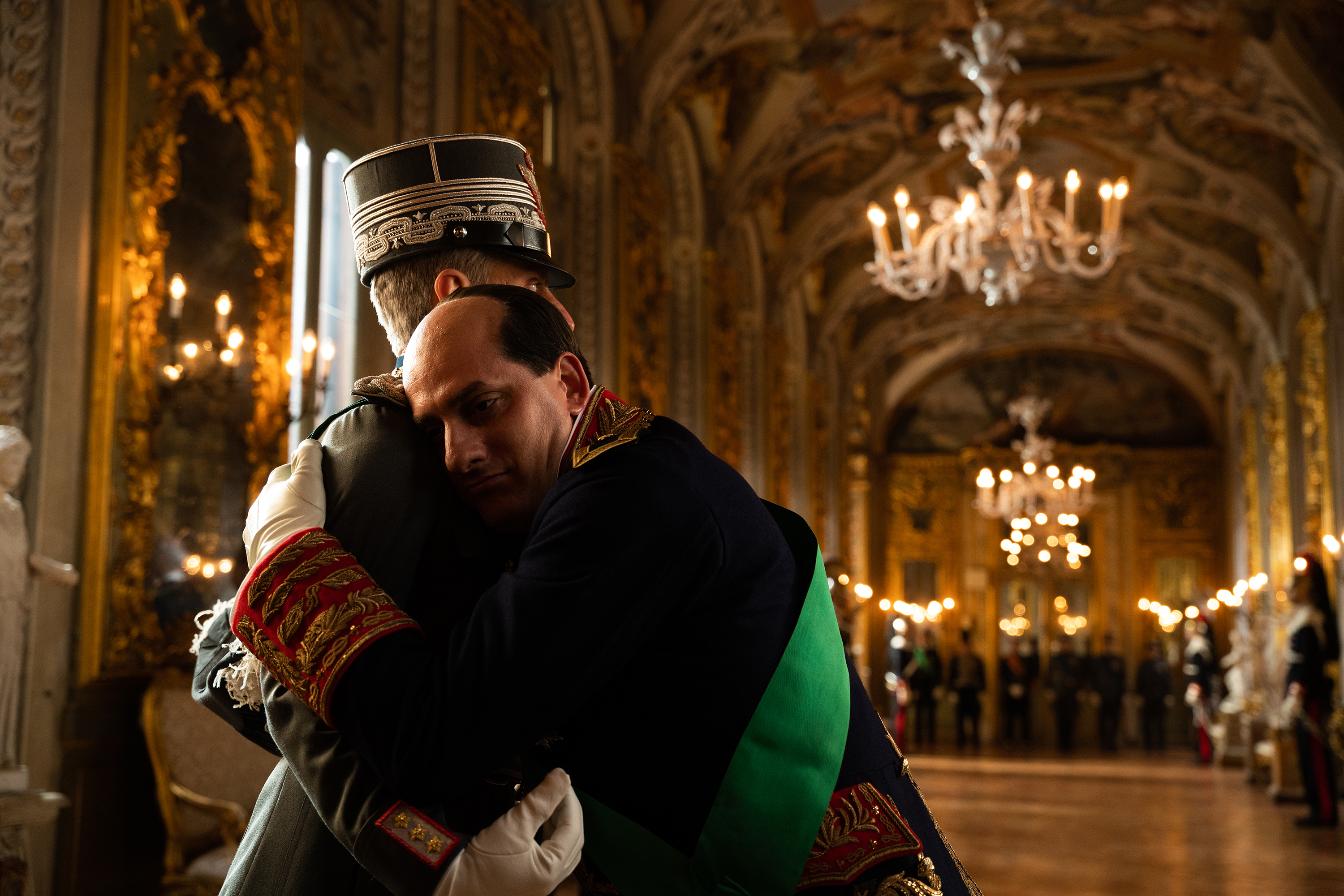 The Chemical Brothers’ Tom Rowlands on creating an electronic score for historical drama, Mussolini
The Chemical Brothers’ Tom Rowlands on creating an electronic score for historical drama, MussoliniTom Rowlands has composed ‘The Way Violence Should Be’ for Sky’s eight-part, Italian-language Mussolini: Son of the Century
By Craig McLean
-
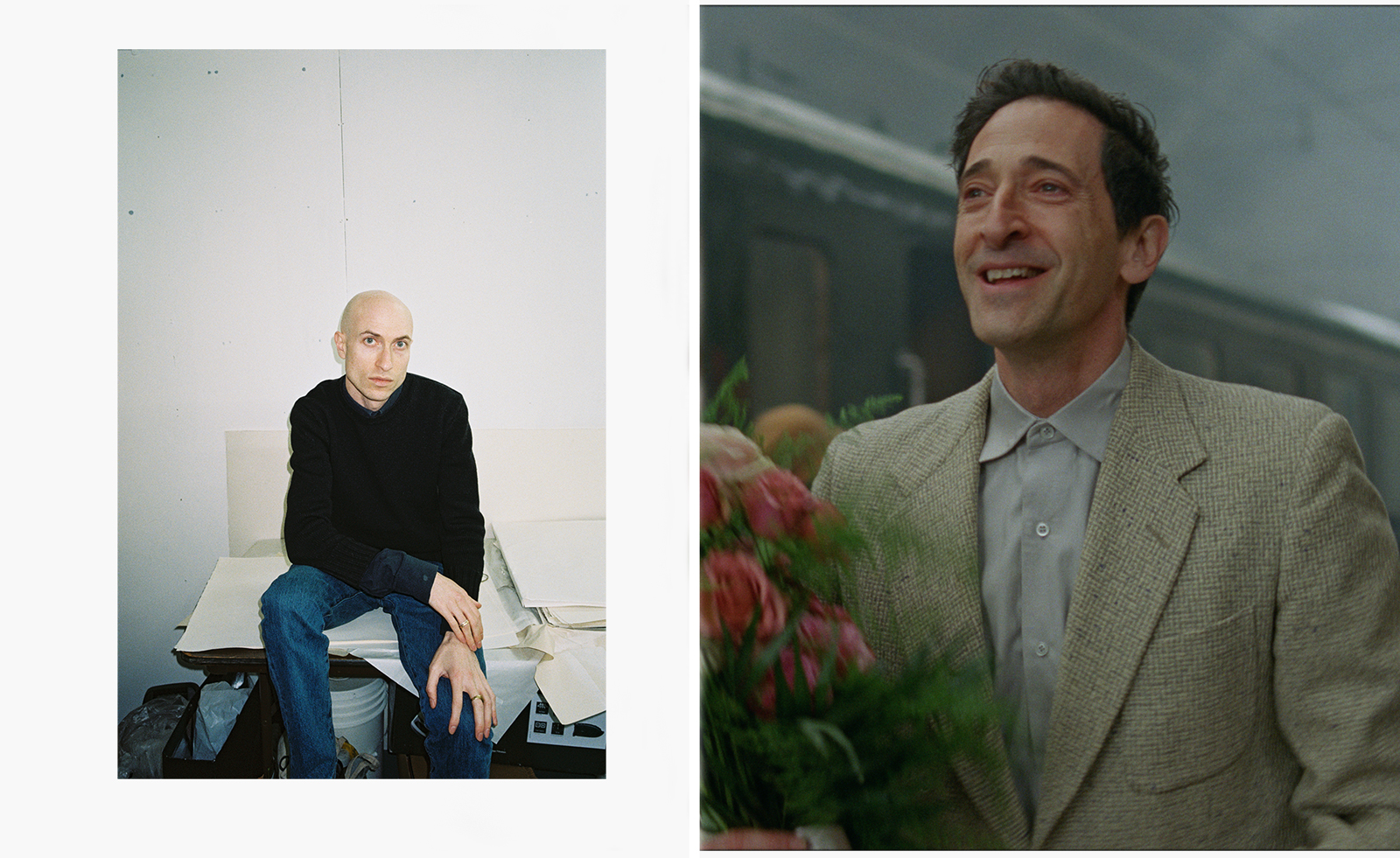 Meet Daniel Blumberg, the British indie rock veteran who created The Brutalist’s score
Meet Daniel Blumberg, the British indie rock veteran who created The Brutalist’s scoreOscar and BAFTA-winning Blumberg has created an epic score for Brady Corbet’s film The Brutalist.
By Craig McLean
-
 Remembering David Lynch (1946-2025), filmmaking master and creative dark horse
Remembering David Lynch (1946-2025), filmmaking master and creative dark horseDavid Lynch has died aged 78. Craig McLean pays tribute, recalling the cult filmmaker, his works, musings and myriad interests, from music-making to coffee entrepreneurship
By Craig McLean
-
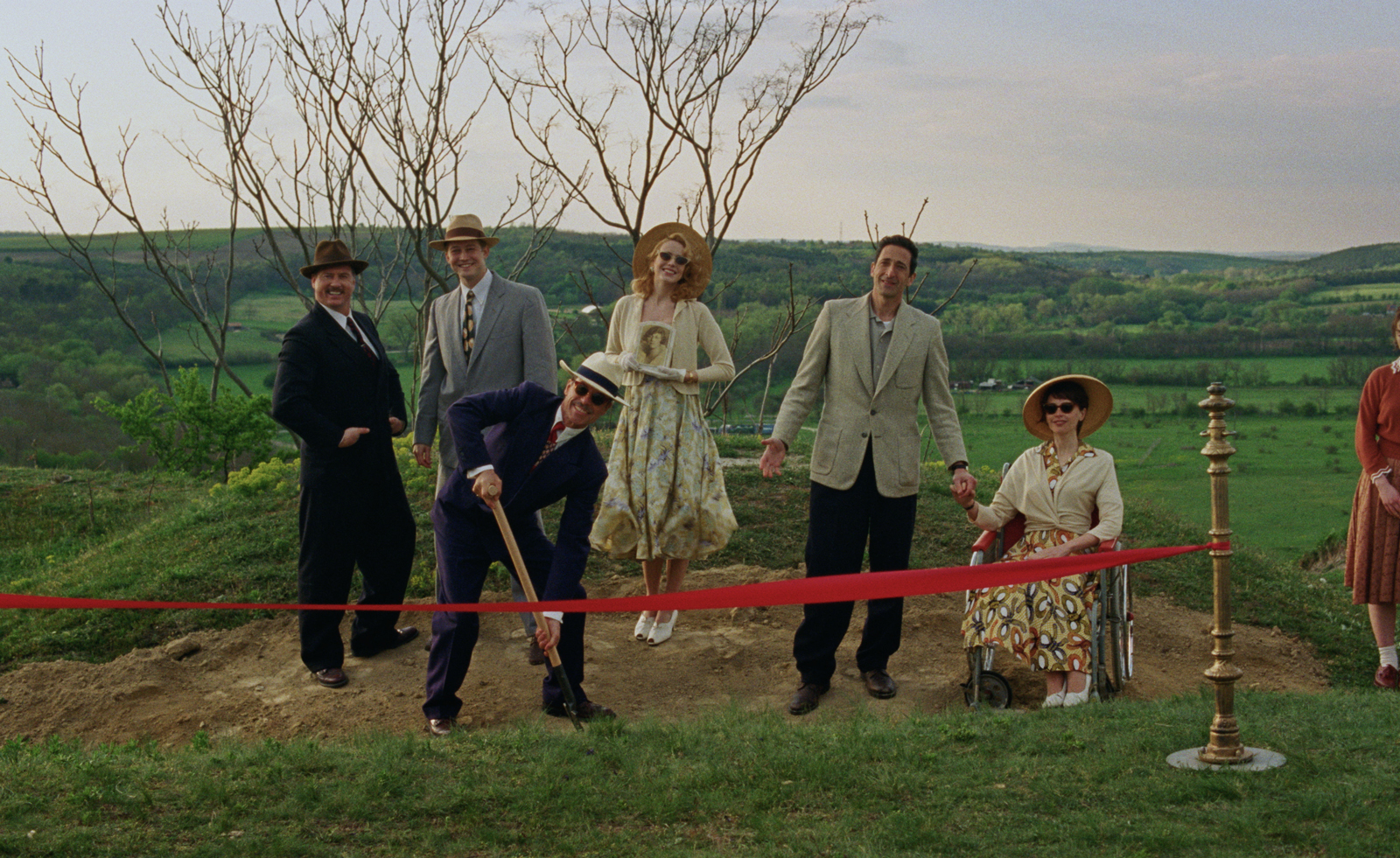 Architecture and the new world: The Brutalist reframes the American dream
Architecture and the new world: The Brutalist reframes the American dreamBrady Corbet’s third feature film, The Brutalist, demonstrates how violence is a building block for ideology
By Billie Walker
-
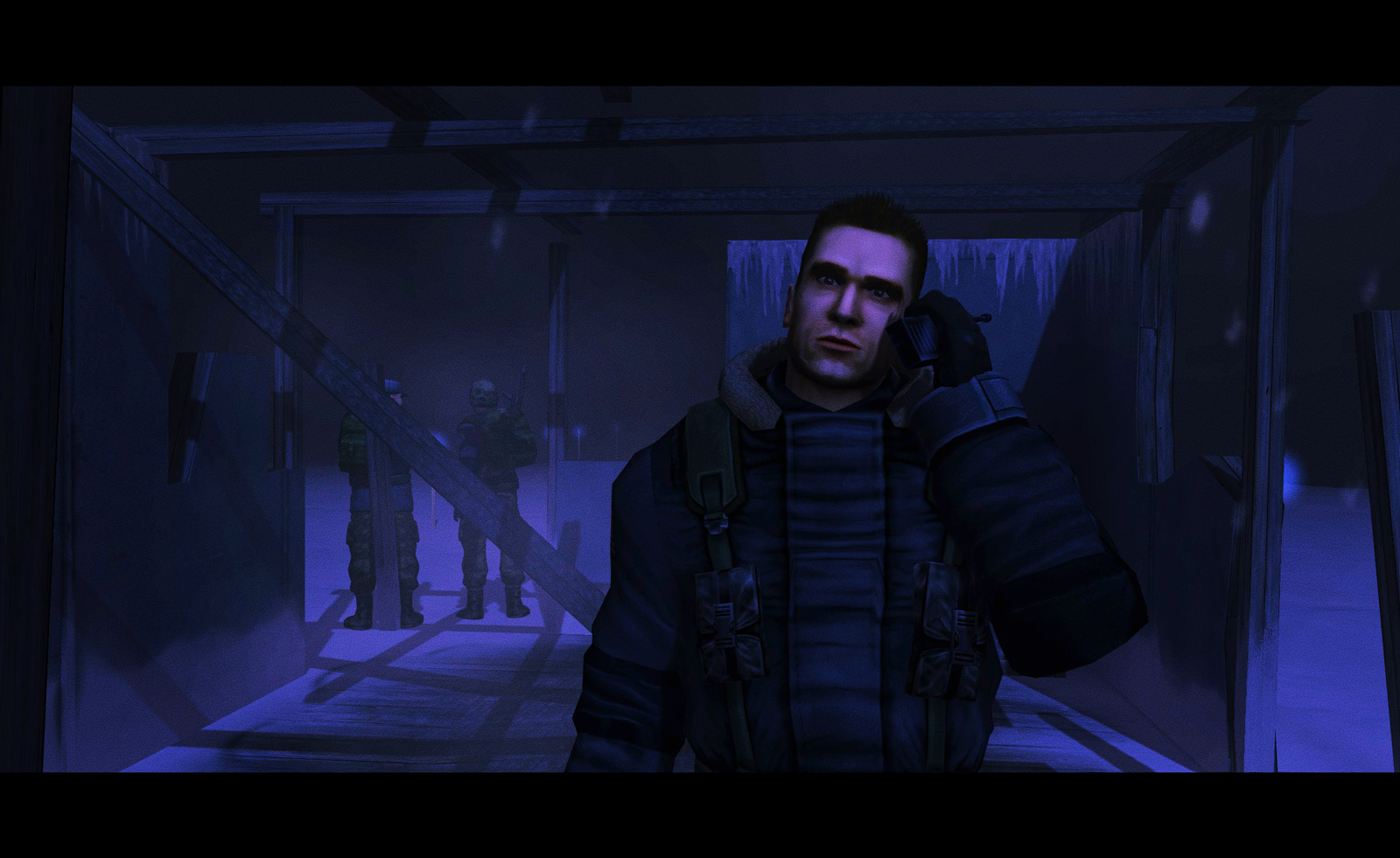 ‘It creates mental horrors’ – why The Thing game remains so chilling
‘It creates mental horrors’ – why The Thing game remains so chillingWallpaper* speaks to two of the developers behind 2002’s cult classic The Thing video game, who hope the release of a remastered version can terrify a new generation of gamers
By Thomas Hobbs
-
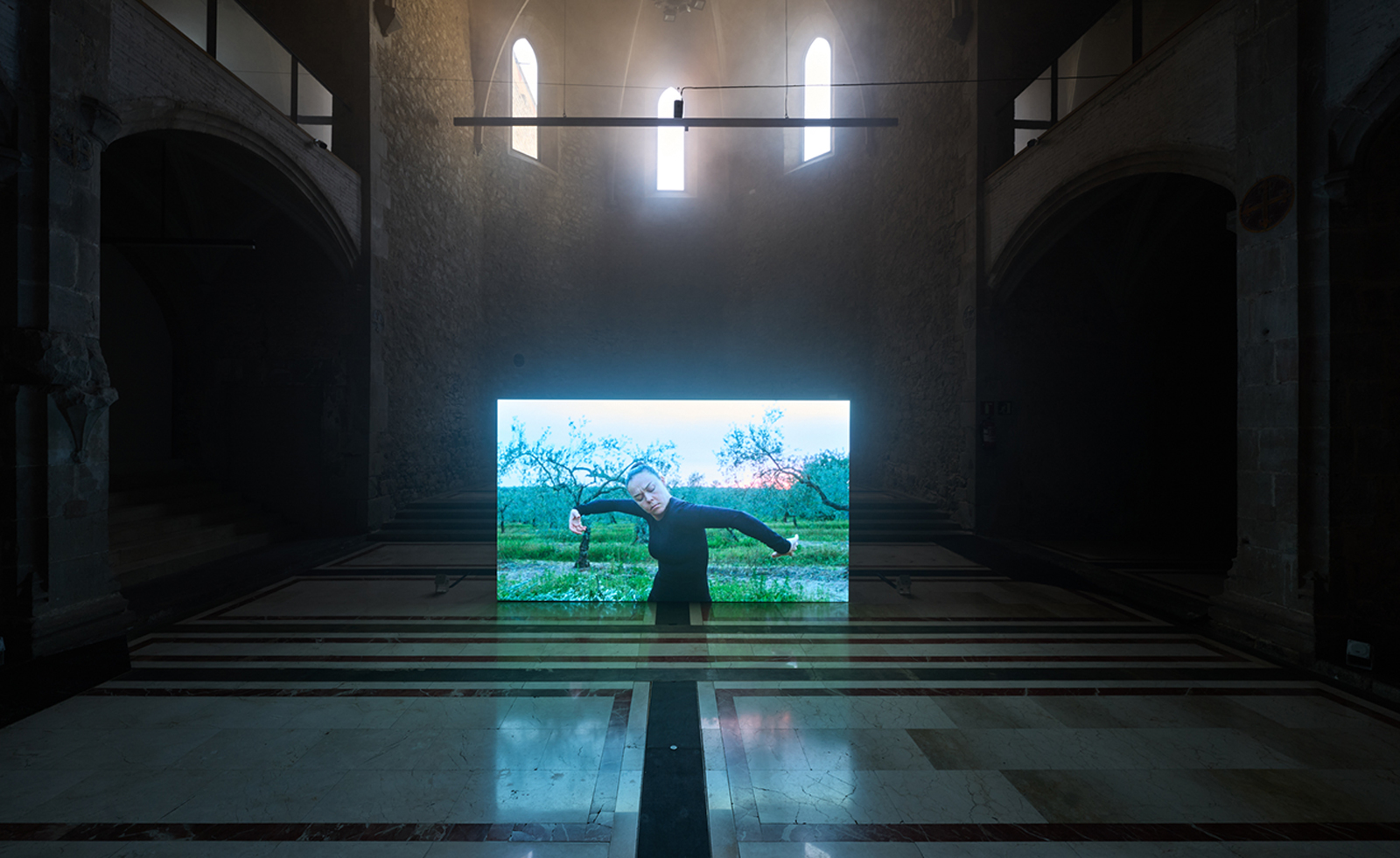 Wu Tsang reinterprets Carmen's story in Barcelona
Wu Tsang reinterprets Carmen's story in BarcelonaWu Tsang rethinks Carmen with an opera-theatre hybrid show and a film installation, recently premiered at MACBA in Barcelona (until 3 November)
By Emily Steer